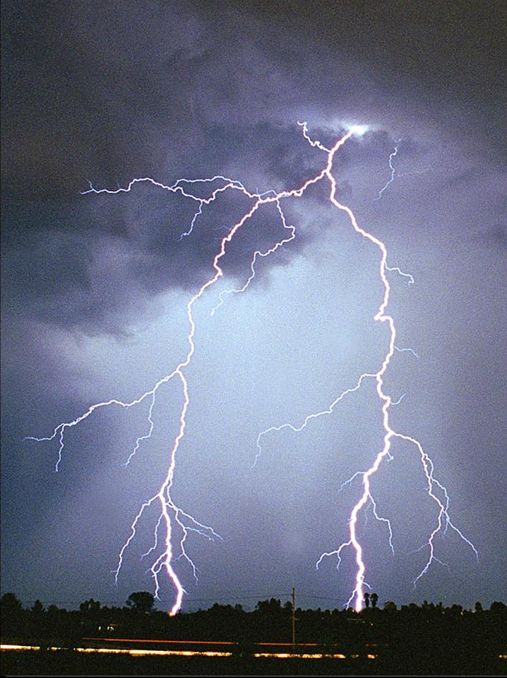
If you're chatting on a cell phone during a lightning storm, dropped calls could be the least of your worries.
According to a letter published in this week's issue of the British Medical Journal, people who talk on, or even just carry, mobile phones outdoors during storms are more likely to sustain fatal internal injuries if struck by lightning.
One U.S. lightning expert is skeptical, however.
Flashover
Human skin is resistant to transmitting electricity into the body, so when lightning strikes a person, it tends to travel along the skin. Scientists call this phenomenon "flashover." According to the doctors, conductive materials such as liquids or metallic objects can interrupt flashover and direct lightning into the body, causing internal damage.
"This can result in injuries like cardiac arrest, which is often fatal," said Swinda Espirit, a doctor at Northwick Park Hospital in England who co-authored the letter.
The doctors describe the case of a 15-year-old girl who was struck by lightning while using a cell phone in London. The girl survived, but still suffered physical, cognitive and emotional problems one year later.
Get the world’s most fascinating discoveries delivered straight to your inbox.
The doctors also cite three anecdotal newspaper reports of people being struck by lightning while talking on cell phones.
"This rare phenomenon is a public health issue, and education is necessary to highlight the risk of using mobile phones outdoors during stormy weather…" the doctors write. The letter in the journal, however, is not backed by the sort of scientific rigor that goes into many published papers.
Unlikely…
Vladimir Rakov, a lightning expert at the University of Florida, chuckled when he heard about the letter. He says the mechanism outlined by the doctors sounds unrealistic.
"I don’t think having a cell phone in your pocket can change the outcome of a lightning strike," Rakov told LiveScience.
Better advice, Rakov said, would be: "Don't remain outdoors during a thunderstorm, whether you carry a cell phone or not."
- Lightning Gallery
- The Science of Lightning
- Earth's Lightning Zaps Space, Too
- Cell Phone Towers Double As Rainfall Monitors
- Some of Ben Franklin's Quirkiest Ideas
- The Most Popular Myths in Science
- Lightning Safety
 Live Science Plus
Live Science Plus





